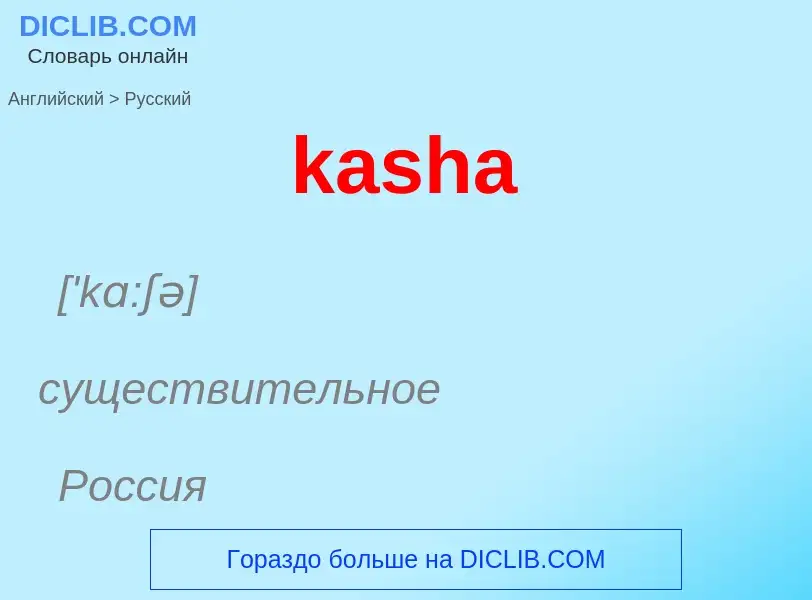Translation and analysis of words by ChatGPT artificial intelligence
On this page you can get a detailed analysis of a word or phrase, produced by the best artificial intelligence technology to date:
- how the word is used
- frequency of use
- it is used more often in oral or written speech
- word translation options
- usage examples (several phrases with translation)
- etymology
kasha - translation to russian
['kɑ:ʃə]
существительное
Россия
каша
особ. гречневая
крупа
Definition
Wikipedia

In English, kasha usually refers to the pseudocereal buckwheat or its culinary preparations. In various East-Central and Eastern European countries, kasha can apply to any kind of cooked grain. It can be baked but most often is boiled, either in water or milk, and therefore the term coincides with the English definition of 'porridge', but the word can also refer to the grain before preparation, which corresponds to the definition of 'groats'. This understanding of kasha concerns mainly Belarus (каша), the Czech Republic (kaše), Lithuania (košė), Poland (kasza), Romania and the Republic of Moldova (cașa), Russia (каша), Slovakia (kaša), Kazakhstan, and Ukraine (каша), where the term, besides buckwheat, can apply to wheat, barley, oats, millet and rye. Kashas have been an important element of Slavic diet for at least 1,000 years.
This English-language usage probably originated with Jewish immigrants, as did the form קאַשי kashi (literally translated as "porridges").



![[[Buckwheat]] [[grain]]s [[Buckwheat]] [[grain]]s](https://commons.wikimedia.org/wiki/Special:FilePath/Kashagrains.png?width=200)
.jpg?width=200)
